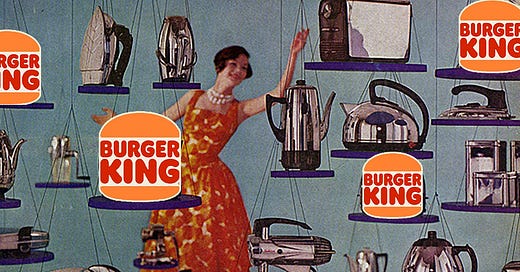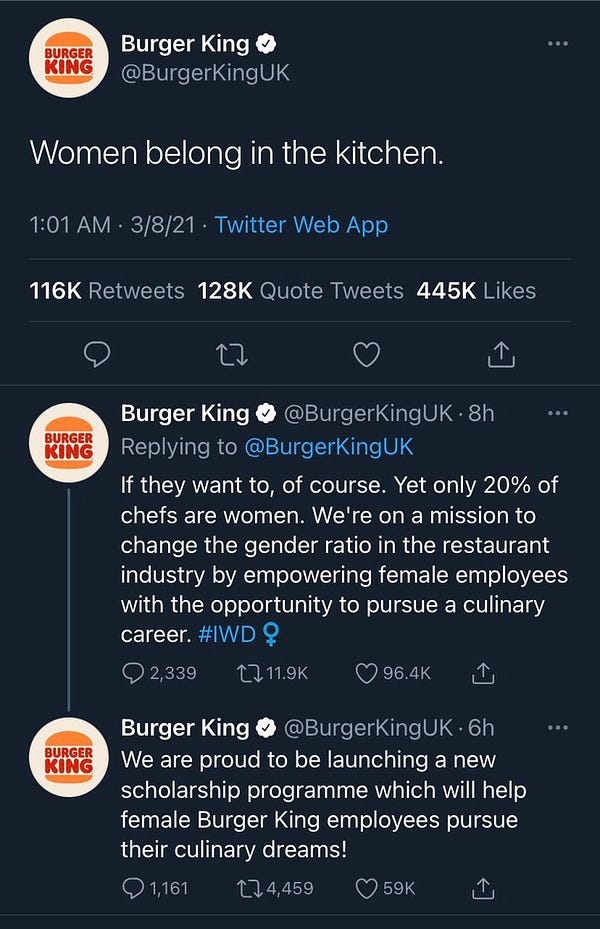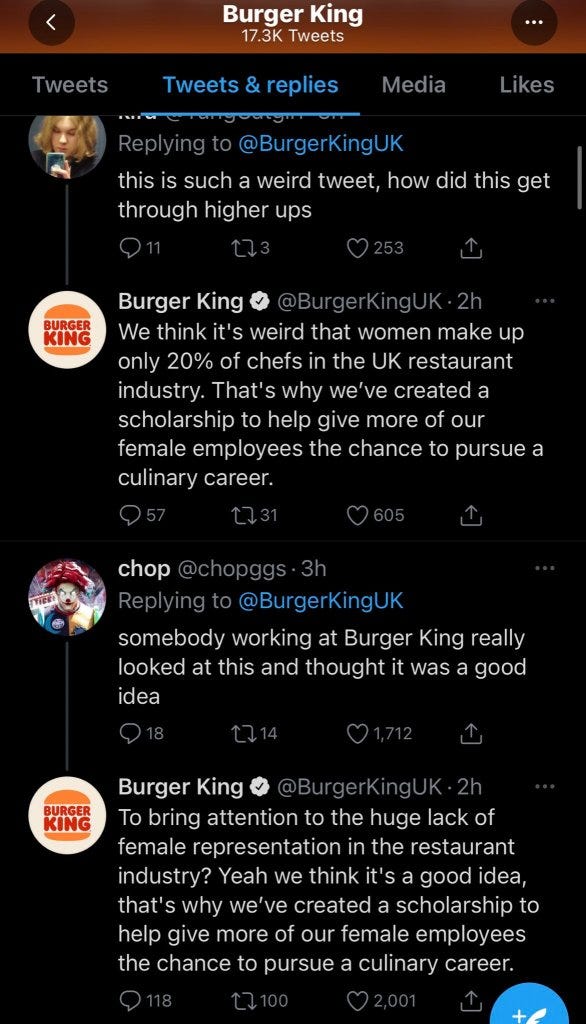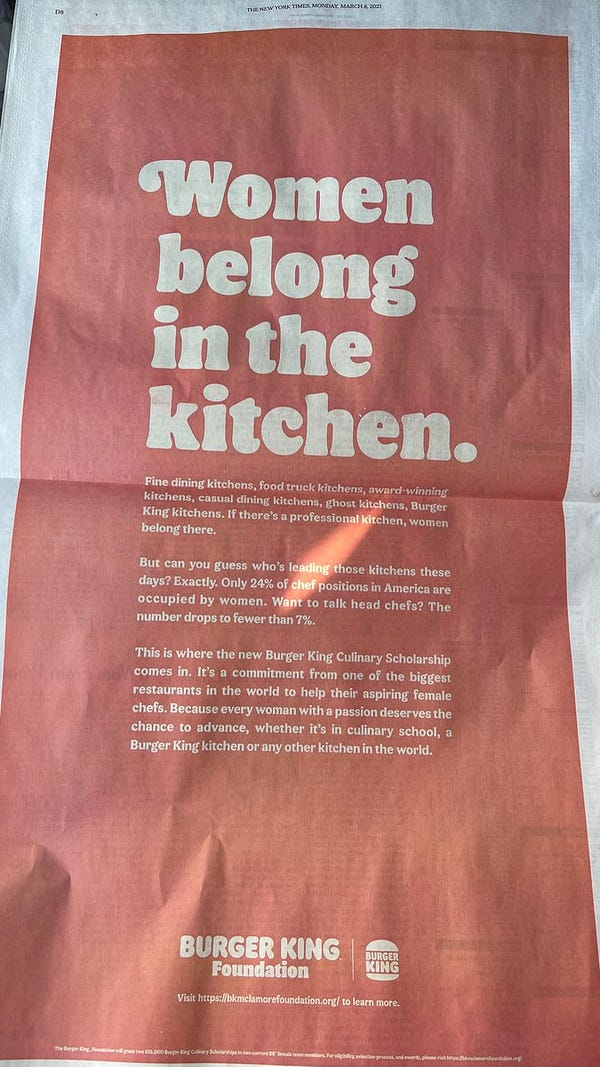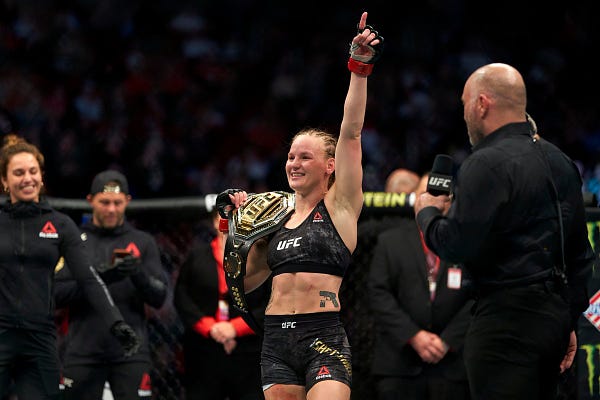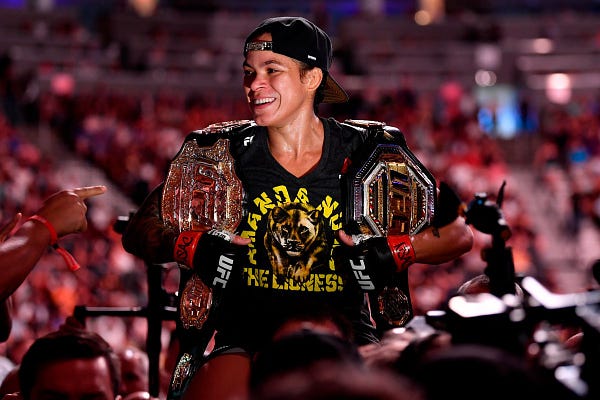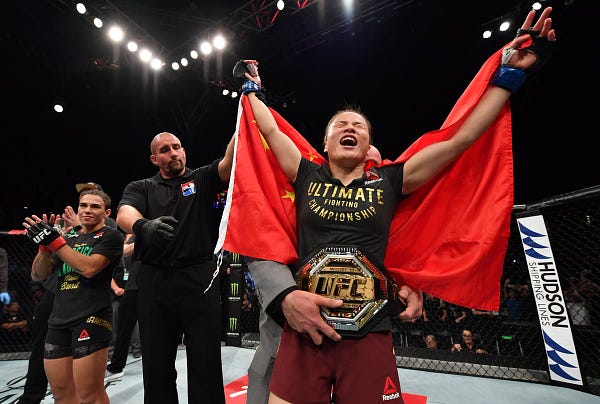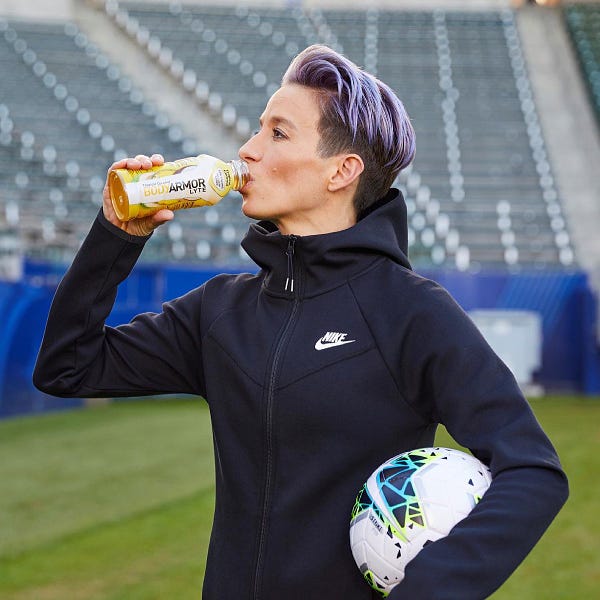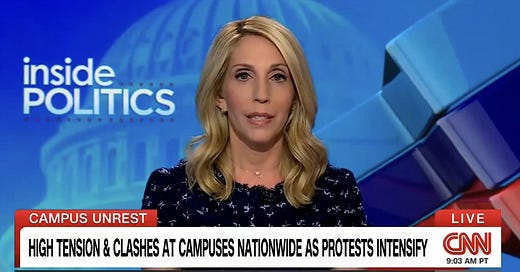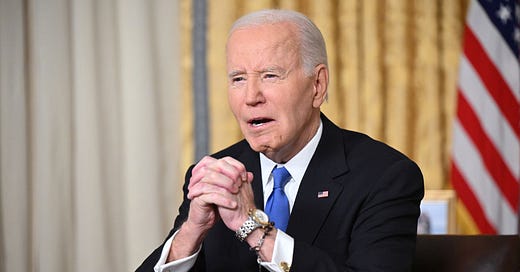
The Revolution Will Not Be Advertised
Burger King's sexist International Women's Day tweet was a reminder that the road to justice never runs through capitalism.
As we have established on Discourse Blog, the brands will never save us. Nevertheless, the people behind their promotional work continue to find new, inventive ways to show off their ignorance.
On Monday, Burger King "celebrated" International Women's Day with an ad campaign promoting their new culinary school scholarship for employees, only to have it blow up in their faces. That morning, I was up early working on my latest What Now interview and watching Meghan Markle's interview with Oprah, and caught a glimpse of the offending tweet that took the entire campaign down.
It was a message from the Twitter account of Burger King UK, stating, "Women belong in the kitchen." Before I investigated further, all I could think was, what a strange way to react to the undoing of the British monarchy.
The tweet was just the first in a thread explaining that women are disproportionally represented as chefs in culinary kitchens, and that Burger King UK was going to move the needle on this disparity by launching a scholarship for Burger King employees to go to culinary school.
I did take a look at the scholarship itself. It's called a "H.E.R. Scholarship," standing for "Helping Equalize Restaurants." LMFAO neat. If that is not enough for you, then please enjoy this International Women's Day graphic I found on the Burger King Foundation website, featuring what appears to be a lip stick-lined mouth eating french fries that stick out over the bottom lip. (As you will see in several scrolls, this banner appears to be part of the 2021 campaign.)
As an International Women's Day gimmick, the scholarship seemed like a Fine thing for Burger King to be doing. Though, according to the foundation website, only 50,000 scholarship applications will be processed, and at least two $25,000 scholarships will be awarded — a real rising tide for all boats. And a scholarship, even if it was more substantial or went to more people, isn't anything close to a systemic solution for, uhh, the gender disparity in culinary kitchens. It's not like Burger King pledged to improve the lives of its employees, women particularly, by giving them a livable wage, or expanding healthcare benefits. But as far as PR campaigns masquerading as commitments to social inequities go, this was Fine.
Subscribe to Discourse Blog starting at $8 a month.
And maybe I'm wrong, but I'm almost entirely sure that the entire campaign might have withstood the day's criticism — "Women belong in the kitchen" tweets and all — if it wasn't for what happened in the immediate aftermath of the criticism that understandably followed.
When other Twitter users pushed back on the sexist introductory tweet, the BurgerKingUK account managers, instead of letting their intentions speak for themselves, were easily goaded into fighting with critics in the replies.
When someone pointed out the tweet was weird, they responded, "We think it's weird that women make up only 20% of chefs in the UK restaurant industry. That's why we've created a scholarship to help give more of our female employees the chance to pursue a culinary career."
When someone wondered bafflingly that someone thought Burger King UK's initial tweet was a good idea, they replied, "To bring attention to the huge lack of female representation in the restaurant industry? Yeah we think it's a good idea, that's why we've created a scholarship to help give more of our female employees the chance to pursue a culinary career."
Stop dunking on us! We're right about women in the kitchen, and the lack of them! Have you heard about our scholarship??
Burger King UK ultimately apologized and deleted the tweet, though only after a Twitter user pointed out women were being harassed in the replies of the thread, and with a note from Fernando Machado, the global chief marketing officer for Burger King's parent company Restaurant Brands International: we tried, and we're gonna keep trying, and that's what matters.


Burger King UK was the only Twitter account to tweet about the campaign on International Women's Day — likely a burden of being hours ahead of other Burger King markets and receiving the brunt of the criticism before other account managers logged on — but the campaign was international. Burger King printed a full-page ad in the New York Times, that, of course, could not be pulled as easily as a few drafted tweets. The ad itself touted U.S. data, and included a link to its foundation website.
If anything, I guess the full-page ad just revealed how smart the makers of the ad campaign — an agency called David Miami — and the ad-approvers at Burger King thought this campaign was. It was full page Times ad money good. Which I guess is the initial question amid all of this, and every time something like this happens: "Who thought this was a good idea?" "How did anyone think this was OK?" And the answer, every time, is that the wrong people are making the decisions.
Maybe instead of contemplating answers for what we already know, we should consider the potential reality that, if it weren't for a blatantly sexist setup, or just the company's corn-cobbed response to the criticism, Burger King would have flawlessly executed a perfect International Women's Day PR campaign. They likely would have gotten a mostly warm reception to their promotions of two $25,000 scholarships, and maybe a handful of other scholarships they're disbursing in other countries, under the guise of "gender inequity in the kitchen."
It's not that I don't think people can't see right through this stuff. I know consumers, especially those who are Eternally Online, have become more critical than to think a fast food corporation and its low-lift campaign is correcting gender inequity. But the socialist roots of International Women's Day continue to be made invisible by brands that position themselves as allies in the fight. The day itself has been overrun by celebrations of individual or groups of women, even fictional women, instead of celebrations of the history of women's fight against capitalism.


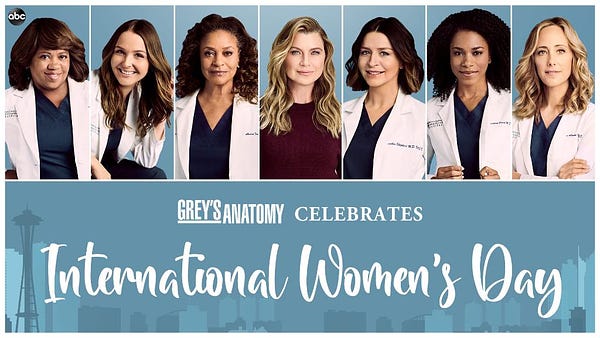

I might not mind an International Women's Day video compilation of celebrities posing with handmade signs calling themselves "limitless" if even a fraction of the mainstream narrative around this day focused on what matters about it—like what it might mean to materially support women, and liberate women on the margins from the financial consequences of gender and racial inequity, and what that might mean for corporations like Burger King that thrive off of the exploitation of labor.
Of course, that narrative is a huge conflict of interest for these corporations, which are far more obliged to celebrate the day by echoing hollow messaging about "women supporting women." And in that context, sexist "kitchen" tweet or not, Burger King's scholarship campaign fits right in.


